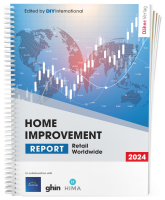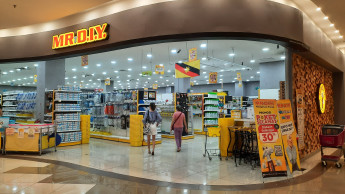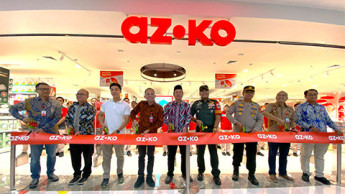In a filing with the Malaysian bourse, the DIY retail chain said same store sales fell 24.6 per cent in the six months ending 30 June 2020 - from an average growth of 1.8 per cent in 2019, 4.5 per cent in 2018, and 6.5 per cent in 2017 - due to the temporary closure of its stores stemming from Malaysia's imposition of a stay-at-home directive.
Adjusted same store sales, which excluded the period during which Mr. DIY's stores were shuttered, were down 0.1 per cent due to a slowdown in consumer demand in Malaysia.
Revenue slipped 4.2 per cent to MYR 1.05 bn (Malaysian ringgit; EUR 215 mio) in the first half of the year from MYR 1.09 bn (EUR 223 mio) in the same period last year. Net profit fell 25.2 per cent to MYR 115.4 mio (EUR 24 mio) from MYR 154.4 mio (EUR 32 mio).
In a research note published on SmartKarma, Zhen Zhou Toh of Aequitas Research downplays the effect of Covid-19 on Mr. DIY. "The value proposition of [Mr. DIY's] shops of walking around and finding home improvement goods and random items...will likely draw consumers back to the stores as the overall pandemic situation improves," he states.
Mr. DIY has kickstarted its IPO with a book-building exercise that runs from October 6 to 14. Listing on Bursa Malaysia, the Malaysian stock exchange, has been set for October 26. The country's biggest home improvement store chain, which corners 29 per cent of the market, is looking to sell 941.49 million shares representing a 15 per cent stake at 1.60 ringgit apiece. Proceeds of the 1.5bn-ringgit offering - said to be the biggest since 2017-will be used for debt repayment.
Mr. DIY has 670 stores in its home country. It plans to open an additional 30 stores for the rest of 2020 and 100 outlets in 2021 using internal funds and bank loans.

 Menü
Menü














